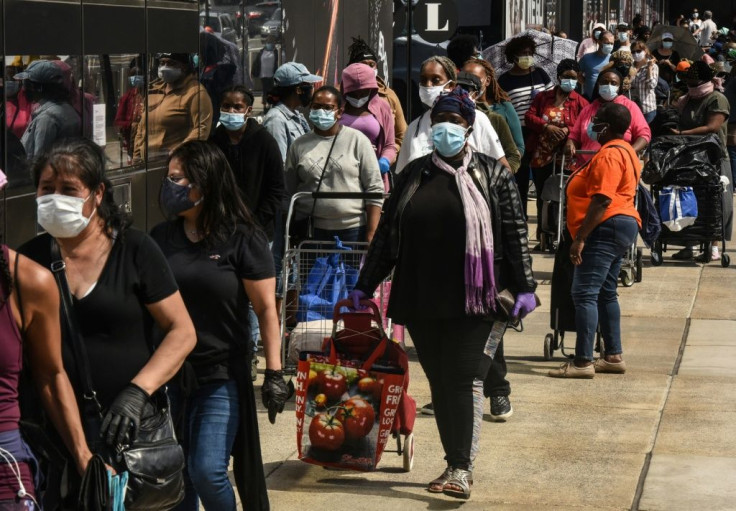Layoffs 2020: Women Hit Hardest By Coronavirus Job Losses, Dubbed 'She-cession'

KEY POINTS
- The unemployment rate among women during April and May was higher compared to men
- This coronavirus-induced recession is now being referred to as a "she-cession"
- The unequal impact of job losses is not expected to end soon
April was the most brutal month for job losses in the United States due to the recession sparked by the COVID-19 pandemic and — for the first time since records were kept — the unemployment rate for women was higher than that for men in a month. And in May, among women, Hispanics and African-Americans suffered the most in what's being called the "she-cession" of 2020.
A historically high number of 20.5 million jobs were lost in April throughout the United States. Out of this awful total, the unemployment rate for women jumped to 16.2%, compared to 13.3% for men, based on an analysis of Bureau of Labor Statistics employment data by the Institute for Women's Policy Research (IWPR), an organization founded in 1987 to meet the need for women-centered, policy-oriented research.
The IWPR analysis also showed the unemployment rate among Hispanic women reached 20% in May. Unemployment among black women rose to 16% while the unemployment rate among white women was the lowest at 15%. IWPR said the racial disparity is because black and Latina women are more likely to work in the service sector, which was the first to be hit by furloughs and firings following the pandemic.
“This is historic and unprecedented,” said C. Nicole Mason, IWPR president and CEO. “Women have never been the face of the economic impact in terms of job loss. This is really uncharted territory.”
Mason noted the terrible impact of the COVID-19 pandemic wiped out nearly all of the gains women have made over the last decade. She said jobs in the service sector are lower wage jobs with less job security and low pay, and therefore the impact more painful for women.
Mason pointed out it's going to take a lot for women to get back on their feet because many of them were already struggling before the pandemic.
Apart from being the hardest hit gender, women are also losing more jobs, according to Elise Gould, a senior economist with the Economic Policy Institute (EPI), a non-partisan American think tank that does economic research and analyzes the economic impact of policies and proposals.
Gould noted that in transportation and warehousing, women hold one-quarter of all jobs but represent 39% of job losses in those sectors. She called this anomaly a "historical discrimination" where women are less likely to be managers and more likely to be front line workers.
Women are also more vulnerable to "occupational segregation," an economic term that describes how workers are distributed across occupations based upon demographic characteristics.
In April, nonfarm payrolls plunged by 20.5 million and the unemployment rate rose to 14.7%, both the highest since World War II.
© Copyright IBTimes 2024. All rights reserved.




















